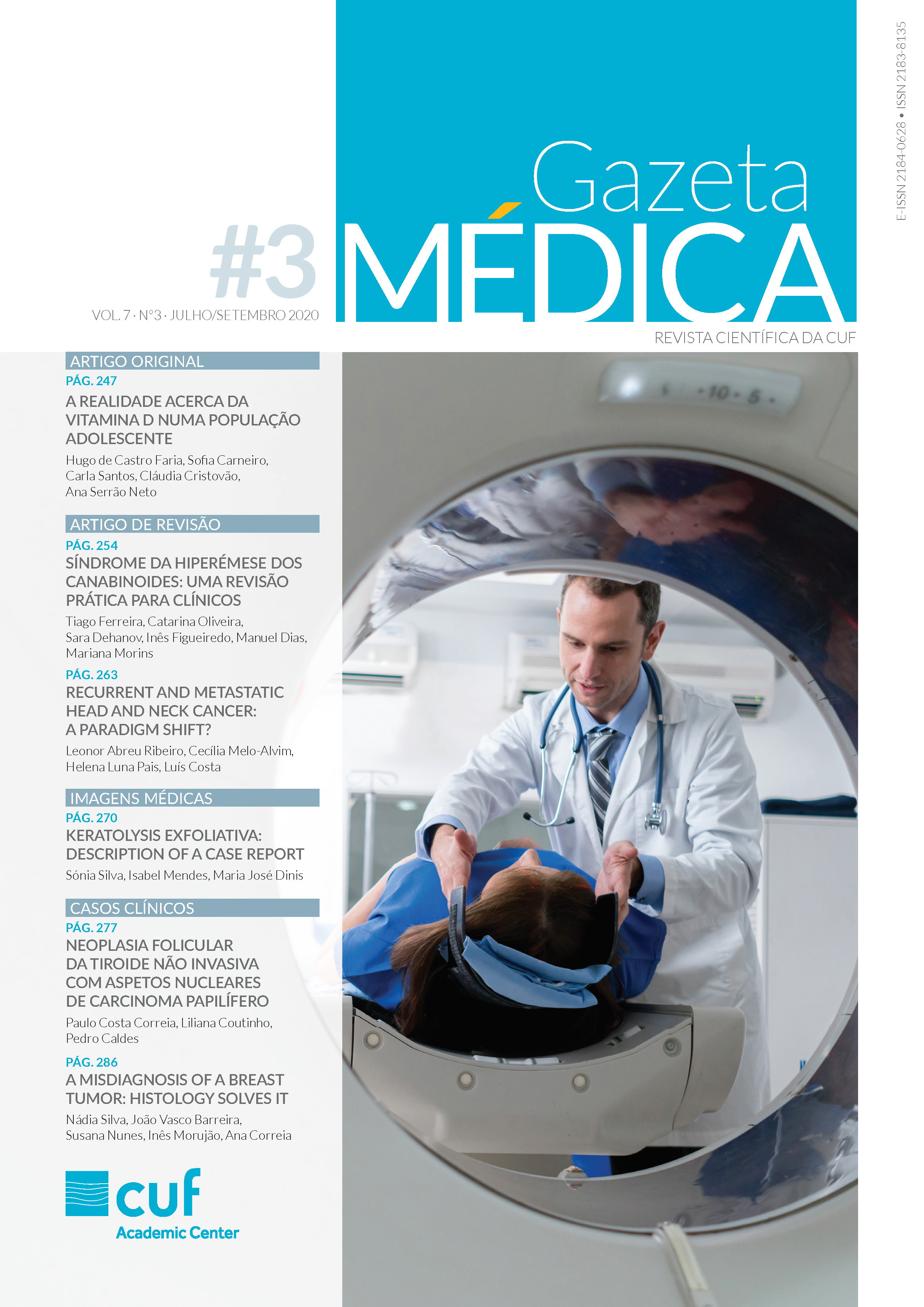Epistaxis and Gastrointestinal Bleeding: Manifestations of Osler-Weber-Rendu Syndrome
Main Article Content
Abstract
Hereditary hemorrhagic telangiectasia, also called Osler-Weber-Rendu syndrome is an autosomal dominant vascular disorder with a variety of clinical manifestations. Among the most common are epistaxis, gastrointestinal bleeding, iron deficiency anemia, mucocutaneous telangiectasia and arteriovenous malformations.
The authors propose to present the clinical case of a patient, male, 78-year-old with decompensated heart failure, iron deficiency anemia requiring transfusion and multiple telangiectasia. History of spontaneous and recurrent epistaxis since youth and recent episode of gastrointestinal bleeding. During hospitalization, he presented an episode of severe epistaxis and hematochezias, complicated by hypovolemic shock. The diagnosis of Osler-Weber-Rendu syndrome was admitted and he started hormone therapy. Prolonged hospitalization due to hemorrhagic and infectious complications, the patient died on the 30th day of hospitalization in the context of acute lung edema.
The case presented corresponds to hereditary hemorrhagic telangiectasia. However, its diagnosis was late, presenting an unfavorable evolution.



